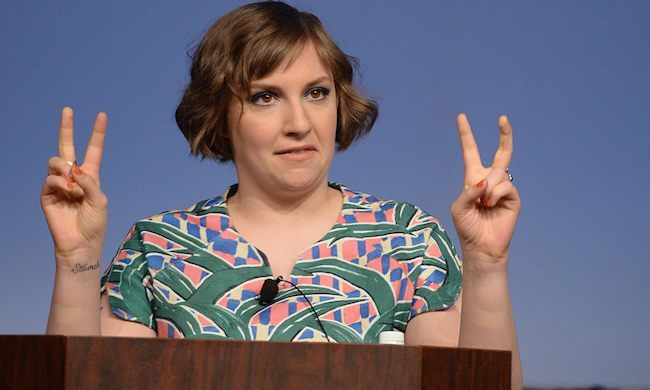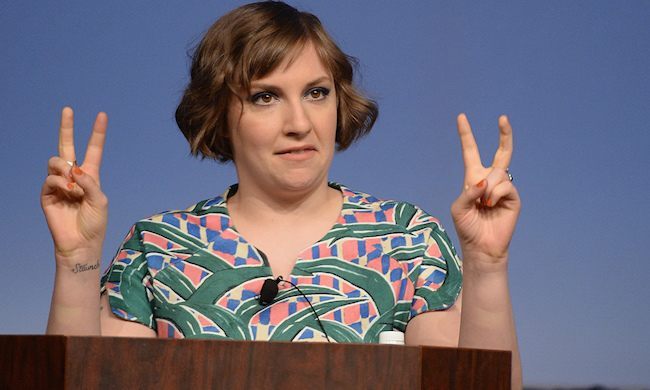Fresh from declaring her support of Oberlin students in claiming the serving of sushi is cultural appropriation, actress Lena Dunham (creator of HBO’s “Girls”), is supporting producer Tami Sagher’s effort to get people to deface the posters for the Jason Bourne movie. The objection is to the inclusion of a gun. So Dunham and Sagher are calling for the work of other artists to be defaced because they disagree with the content. They are doing so without a hint of recognized hypocrisy. Despite the attack on free speech, the response has been muted from HBO and Hollywood figures to an actress and a producer calling for the vandalization of the work of other artists.
There has been a long complaint that advocates on the left appear to discard free speech values when they disagree with the content of speech, as we have seen on college campuses in recent years. That growing concern is evident in the call of producer Tami Sagher who posted a photo of the gun image ripped out of the Jason Bourne New York subway ad with the caption, “Hey New Yorkers, what if we do some peeling & get rid of the guns in the Jason Bourne subway ads. So tired of guns.”
Ok, you are tired of guns, but what you are really saying is that you reserve the right to prevent others from seeing images if you are “tired” of seeing them. To make matters worse, you want others to tear apart the images of other film artists because you are tired of them. Nevertheless, Dunham loved the idea of vandalizing images that she does not want to see. She reposted Sagher’s juvenile message and added “Good idea @tulipbone! Let’s go!”
It would be interesting to know how Dunham would respond to those people “tired” of seeing her work and proceeded to use the same privilege to tear down her posters or deface her images. How about HBO? Would HBO support the tearing down or defacing of its posters? Presumably, these advocates would draw a distinction on the merits of good and bad speech, a distinction that they reserved the right to draw according to their own values and transient mood. Some speech is tiring while other speech is valued. Not only do they reserve the right to make that distinction with regard to the work of other artists, but to deny others the right to make their own choice. Imagine how far this approach could go with other forms of art like sculptures or paintings. Soon we would release millions of micro-censors to remove “tired” images in the name of “truth.”
Reprinted with permission from JonathanTurley.org.


